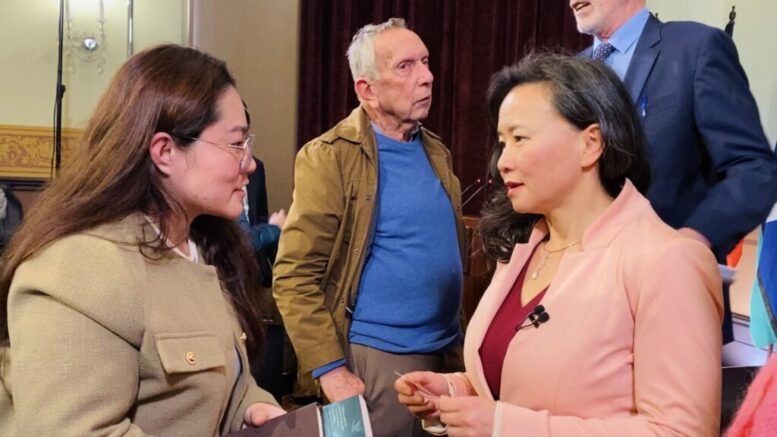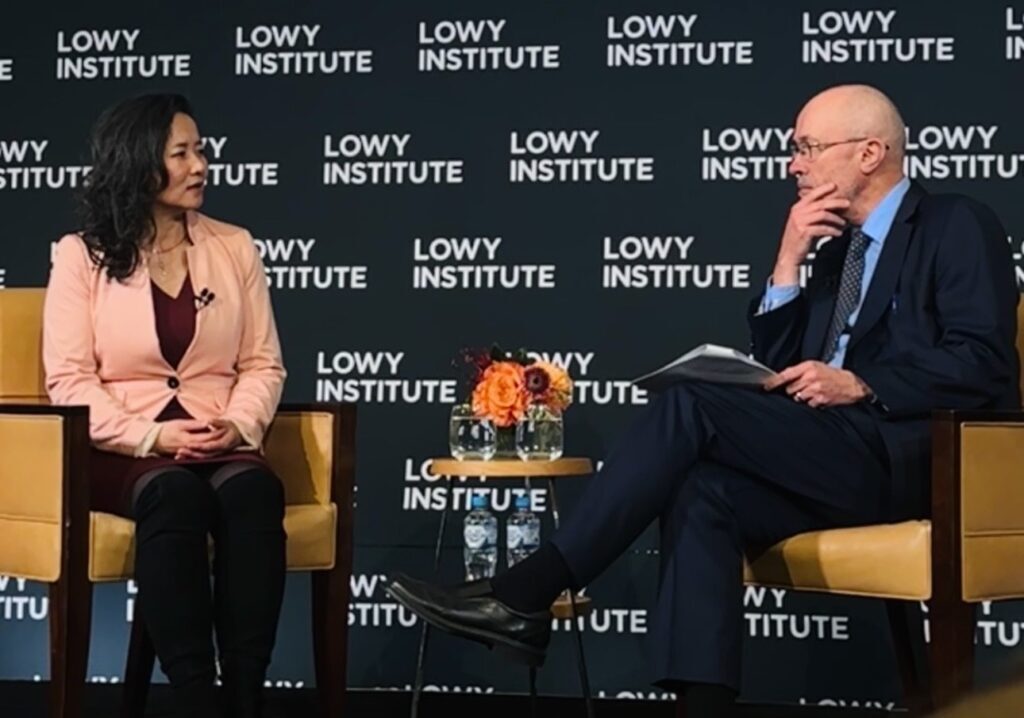Sydney: Cheng Lei, a formerly imprisoned Australian Chinese journalist, launched her debut memoir A Memoir of Freedom yesterday at the Lowy Institute, an independent, non-partisan international policy think tank in Sydney. The event drew an audience of intellectuals, journalists, diplomats, writers, and members of the public, among them was Dawa Sangmo, Chinese Liaison Officer from the Tibet Information Office.
Once a prominent business reporter for China’s state-run English language TV station CGTN and a former China correspondent for CNBC, Lei’s memoir details her harrowing experience of being detained and later imprisoned under China’s notorious RSDL system “Residential Surveillance at a Designated Location.” She was held by officers of China’s Ministry of State Security for nearly three and a half years on charges of espionage, though the charges were never publicly disclosed.
The hour-long discussion was moderated by Lowy Institute’s senior fellow Richard McGregor. Lei spoke about the emotional and physical toll of her six-month secret detention prior to formal imprisonment and reflected on how sustained diplomatic pressure from the Australian government, supported by her family and a vigilant media that ultimately led her release.
Despite her own wrongful detention, Lei consciously separates her personal experience from the broader political relationship between Australia and China. She continues to support an open and cordial engagement with China, emphasising the importance of distinguishing political tensions from economic cooperation. She noted that China remains Australia’s largest trading partner and is home to a diaspora of approximately 1.5 million people of Chinese heritage.
In a private conversation with Dawa Sangmo, Lei acknowledged the challenges faced by vulnerable diaspora communities, including Tibetans, Uyghurs, and Hongkongers, who continue to experience various forms of transnational repression by the Chinese authoritarian regime. She highlighted the importance of democratic allyship among these communities to strengthen collective advocacy, while noting that a realistic understanding of what drives policymakers may be essential to garnering effective and sustained support.
In her closing remarks, Lei expressed her determination to support those who continue to suffer under similar detentions and imprisonment, and to contribute to efforts that foster a better understanding of China. She currently works as a presenter and columnist for Sky News Australia.
-Report field by Tibet Information Office, Canberra


